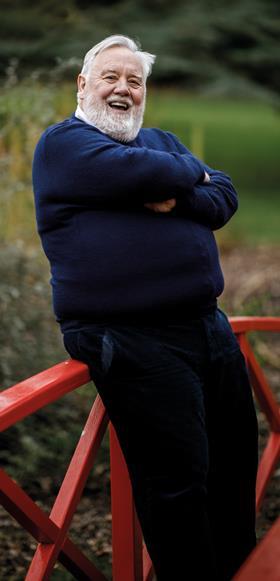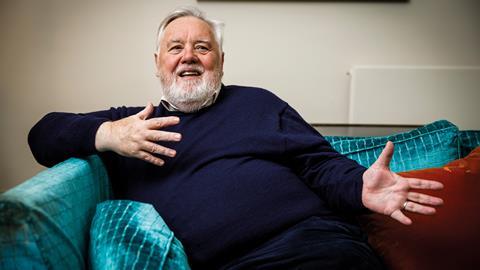Paul Watchman, who has died aged 70, had a career in which partnership at magic circle firm Freshfields appeared to be an important stepping stone to other roles, most notably his contribution to corporate and investor thinking on sustainability, climate change and social justice. A visiting professor at two universities, he was politely scathing about corporate ‘greenwashing’, and as well as lecturing worldwide was often to be found on the professional network platform LinkedIn, promoting initiatives and articles that met his high standards, and critiquing those that did not.
The son of a policeman, Paul grew up in a Glasgow council flat attending local state schools. A talented footballer, at 17 he became a part-time professional playing for Dunfermline Athletic, Fife. He continued to play the Scottish equivalent of non-league football while studying law at the universities of Strathclyde and Glasgow. While at Glasgow, he helped found the city’s first legal advice clinic.
His pro bono commitment was career-long, including work for the homelessness charity Shelter. As he later reflected: ‘There aren’t many partners at firms like Freshfields who are experts at homelessness law.’
Admitted in Scotland in 1977, Paul became head of planning and environment at Brodies, which he left for partnership at Freshfields in 1992, and was admitted in England and Wales in 1994.
In 2005, a year before he left the partnership, Paul and colleagues produced the ‘Freshfields Report’, under the aegis of the United Nations Environment Programme Financial Initiative (UNEPFI). It showed ESG priorities could be treated as a holistic part of a company’s or law firm’s practice. The work led to the UN principles on responsible investment.
As Paul told the Gazette last year: ‘Despite everyone’s best efforts, we don’t have a hope of getting to net zero unless BP, Exxon, EDF and the rest of the usual industrial polluting suspects come on board. There is no Planet B.’

After leaving Freshfields, he wrote and lectured widely, on one occasion sharing a platform with former US vice president Al Gore. Academic posts included senior visiting fellow at the London School of Economics and visiting professor at the University of Aberdeen. He was special adviser to the UN Environment Programme Financial Initiative, CEO of his own ESG consultancy, and board adviser to a number of environmental and sustainable investment charities.
Paul chaired the advisory board of Lawyers for Net Zero, a group of in-house lawyers seeking to use their influence and some of their corporate heft to support sustainability. His book on the 1915 Glasgow rent strikes was at an advanced stage (he first wrote on ‘rotten landlords’ and the law in 1978).
I came across Paul through my role writing and commissioning articles on the relationship between law, the environment, social justice, human rights and business – interests we shared. He rather stood out in the corporate environment of the networking platform LinkedIn, where in among everyone else’s humblebrags, he challenged people and institutions on big issues – and promoted what he saw as worthwhile work. He also noticed people as individuals – kindly donating when I was charity fundraising for a charity connected to my disabled daughter’s condition.
Paul was a good and diligent contact who was generous with his time, and it was easy to forget we had not met face to face. Noticing that I was making trips to see my daughter at university, Paul suggested we remedy that with coffee or lunch in Cambridge, not too far from his home. Of course I said I’d love to.
Unfortunately, we never did, but reading other tributes to Paul, I’m certain that meeting would have confirmed my very high opinion of him.
































1 Reader's comment